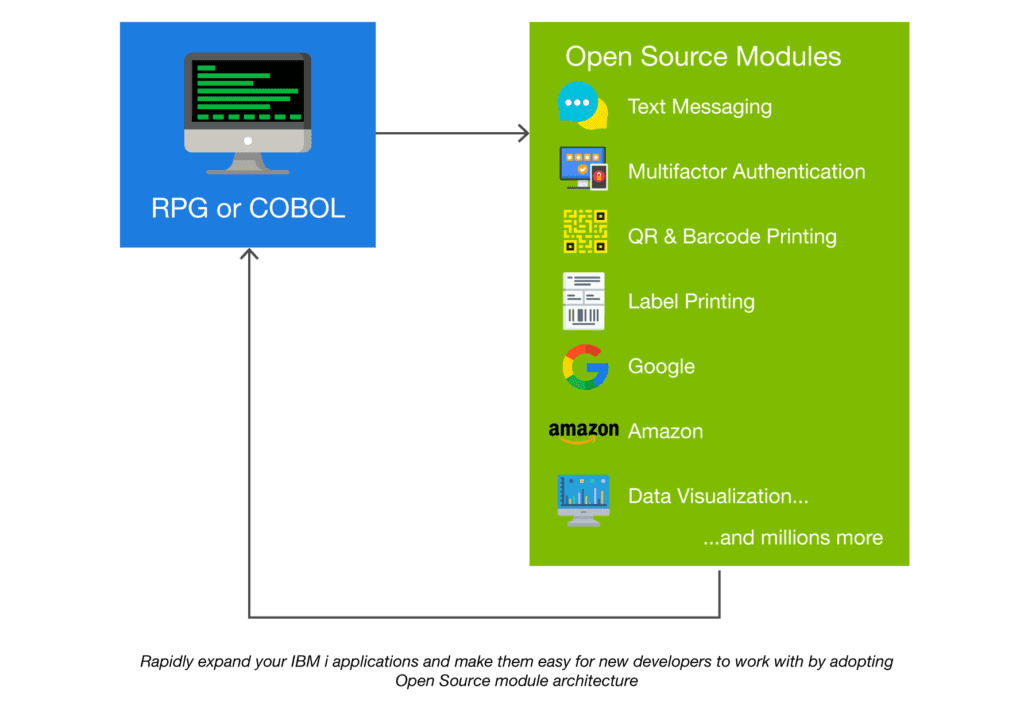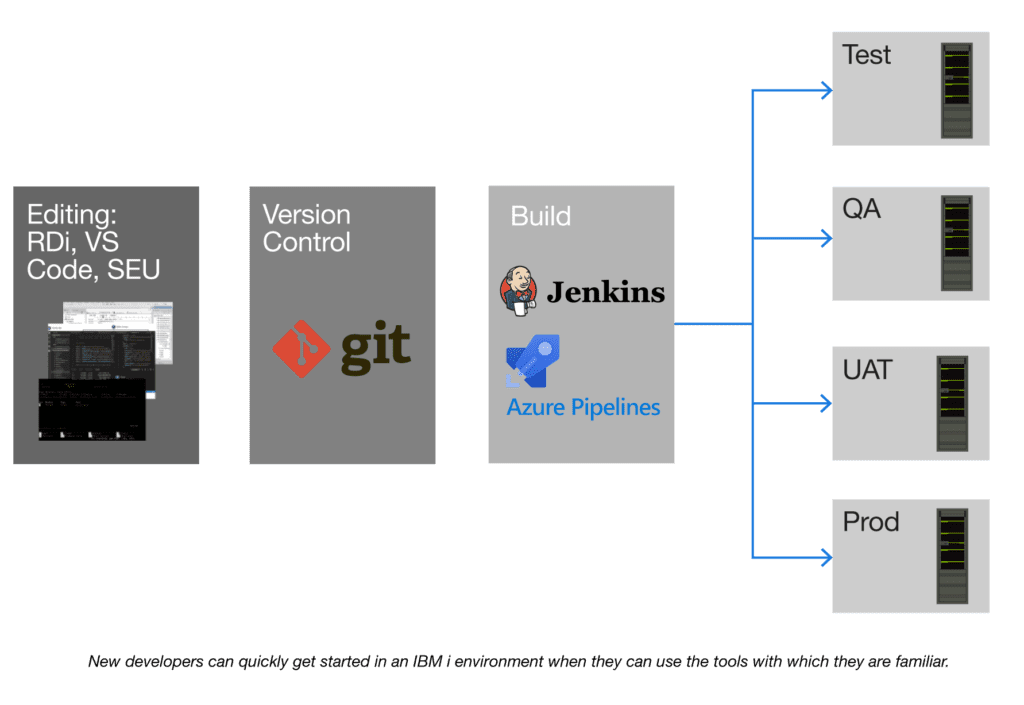According to the latest Help Systems IBM i survey (https://www.helpsystems.com/resources/guides/ibm-i-marketplace-survey-results), one of the most significant challenges IBM users say they face is finding and retaining skilled staff to maintain their IBM i applications. Most IBM i shops have powerful RPG or COBOL-based applications that have, over decades, been finely tuned to match the requirements of the business. It is extremely difficult to replace the vast amount of customized function and domain knowledge built into those applications.
Yet, too few young developers have the background, experience, or desire to learn and work on those applications. At the same time, many of the highly skilled IBM i developers companies depend on are nearing retirement. Fortunately, the explosion of new Open Source technologies combined with robust API solutions specifically for the IBM i provide some straightforward steps to transforming your IBM i environment into an attractive destination for the next generation of developers (without rewriting all of your RPG or COBOL code!)
Some steps you can start taking now:
- API enablement – API enabling your IBM i applications not only makes it easy to connect with the latest user interface technology but also opens the door to enhance your applications with the latest in Open Source languages like JavaScript, Java, PHP, .Net, Python, and others. Once you move to API-based development, you open the door to recruiting from the millions of Open Source developers.

- Use Open Source modules – young developers are used to assembling applications from pre-existing modules rather than writing all of their application code from scratch. You can call these modules directly from your RPG or COBOL code using APIs. Need to add text messaging? There is a module for that. Want to print bar codes or QR code labels? There are modules for that. Want to talk to Amazon or Salesforce? In JavaScript alone, there are two million prewritten modules you can download and use.Millions of Open Source developers are familiar with incorporating Open Source modules into their code. They can quickly learn the RPG or COBOL they need to know to call these modules. At the same time, it is easy for your RPG and COBOL programmers to learn how to call Open Source.

- Adopt Open Source DevOps tools – The biggest barrier to recruiting new developers to the IBM i world is not the RPG and COBOL languages. Young developers are used to constantly learning new languages and technologies. The biggest barrier is the tooling. Developers want to work in tools with which they are familiar. Every new developer out of university or a code academy has been taught to work with Git for source control, Make for compiling and building, and tools like Jenkins and Azure DevOps for promotion. Some of IBM’s latest announcements make it clear that IBM sees the future of IBM i development to be centered around using these Open Source tools. The IBM i no longer needs to be an outlier with an unfamiliar development environment – it can support all the standard tools everyone else uses. Once you move to Open Source DevOps tools, IBM i development will look like any other platform’s development. That will significantly reduce the barriers to recruiting new developers.

API enablement and adopting Open Source development tools can transform how applications are developed on the IBM i. It will allow you to combine the traditional strengths of the IBM i (reliability, low cost of ownership, ease of use, etc.) and the power of your existing applications with the latest methods and technologies for software development. The steps outlined above will help you recruit new engineers and set you on the path to ensuring that your IBM i applications will continue to successfully serve your organization for decades to come. To learn more about how you can get started today, visit our website at www.eradani.com or contact us at: info@eradani.com. We look forward to speaking with you!



